This article was medically reviewed by Roy Nattiv, MD. Dr. Roy Nattiv is a Board-Certified Pediatric Gastroenterologist in Los Angeles, California. With over 20 years of experience he specializes in a broad range of pediatric gastrointestinal and nutritional illnesses such as constipation, diarrhea, reflux, food allergies, poor weight gain, SIBO, IBD, and IBS. He completed his pediatric residency at the Children’s Hospital at Montefiore, Albert Einstein College of Medicine in New York, and his fellowship at the University of California, San Francisco (UCSF). While at UCSF, he was a California Institute of Regenerative Medicine (CIRM) fellowship trainee and was awarded the North American Society for Pediatric Gastroenterology, Hepatology, and Nutrition (NASPGHAN) Fellow to Faculty Award in Pediatric IBD Research. Dr. Nattiv received his undergrad degree from the University of California, Berkeley, and his medical degree (MD) from the Sackler School of Medicine in Tel Aviv, Israel.
There are 15 references cited in this article, which can be found at the bottom of the page.
This article has been viewed 129,172 times.
Studies show that over 27,000 Americans are diagnosed with stomach cancer every year.[1] Unfortunately there isn't an effective early screening method for this type of cancer, but paying attention to physical symptoms may help you to catch it early. Experts note that understanding the symptoms and seeking immediate medical help can improve your chances of a full recovery from stomach cancer.[2]
Steps
Identifying Early Symptoms
-
1Recognise the main abdominal symptoms. Your stomach is part of your upper digestive system and it helps to process the nutrients in the food that you eat. After leaving the stomach, food goes into your small intestine, and then into your large intestine.[3] The main potential symptoms of stomach cancer can be divided into those which directly affect your abdomen, and those which are more general.
- The abdominal symptoms which typically present earliest include heartburn and indigestion. Heartburn (or dyspepsia), a burning sensation in the chest and upper abdomen, results from regurgitation of acid into the esophagus.
- A tumor in the stomach will often lead to improper breakdown of food in the stomach, which, in turn, can lead to burping and other symptoms of indigestion.
- Just because you experience these symptoms doesn’t mean you have cancer, but if you experience them frequently, speak to a doctor.
-
2Be aware of feeling bloated. Stomach cancer can cause abdominal swelling, which can cause frequent bloating. You may feel bloated after eating, and might feel unusually full even after eating only a small amount of food. Feeling bloated can be one of the early symptoms of stomach cancer.
- Stomach pain, and pain in your sternum (breast bone) can be associated with stomach causes.[4]
- If you find yourself frequently feeling full and bloated, and are experiencing some of the other early symptoms, visit your doctor.
Advertisement -
3Consider if you have difficulty swallowing. If you are having difficulty swallowing, it is possible that this is being caused by a tumor at the junction of your esophagus and stomach.[5] A tumor here can obstruct food, causing dysphagia (difficulty swallowing).
-
4Act if you have chronic nausea. In stomach cancer cases, obstructions may exist at the junction of the stomach and the intestine, blocking the passage of food. This could indicate a tumor at the junction of the stomach and intestine. The most obvious symptom that this is occurring will be chronic nausea and even vomiting.[6]
- Vomit in rare cases may be in streaked with blood. If you are vomiting and you see blood, make an appointment to see a doctor immediately.[7]
-
5Consider more general cancer symptoms. You may experience more general symptoms that are not specifically related to your stomach, but can nevertheless indicate a problem and may suggest a more aggressive or progressive cancer growth. Be sure to check your lymph nodes. Enlarged lymph nodes are a symptom of a number of illnesses. In the case of (stomach) cancer, cancer cells will travel from the stomach (or wherever the tumor is located) through the lymph ducts, to the left axillary lymph nodes. This then causes swelling.
- Look out for signs of cachexia (decrease in muscle mass). Cancer cells will increase your basal metabolic rate, which will then result in a wasting of muscle.
- Loss of blood from the cancer can result in anemia, which may cause paleness and weakness.
- People with cancer may have chronic fatigue, a feeling of lethargy, or trouble staying alert.[8]
Recognising the More Developed Symptoms
-
1Note increasing abdominal pain or discomfort. Pain or discomfort in the abdomen or stomach will intensify as a cancer progresses and a tumor grows. The pain associated with stomach cancer will generally increase in intensity over time, and will not subside with medication.
- Stomach tumors can compress surrounding structures, while ulcerative cancer can erode the stomach's membranes. Both of these two things can cause stomach pain.
-
2Evaluate your appetite. Cancer cells secrete substances that diminish the body's hunger signals. This, combined with a tumor tricking your stomach into feeling full, can lead to a distinct loss of appetite.[9] As a result, as cancer progresses, a patient can suffer severe weight loss. If you think you are losing your appetite and losing weight for no reason, keep a record of your weight loss and talk to your doctor.[10]
-
3Checks for lumps and swelling in your stomach. Over time more fluid will build up in your stomach and you may begin to notice lumps and swelling in your stomach.[11] In cancer of the stomach, patients may feel a hard, irregular lump in the abdomen. This lump will move with breathing, and may fall forward when you bend over.
- A developed cancer may cause a hard mass in the left-upper abdomen in the area of the stomach.[12]
-
4Look for symptoms in your stool and changes in bowel patterns. When stomach cancer reaches more advanced stages, it can cause continuous bleeding, which is lost as excrement. This will result in bloody or black stools. Check for blood in your stools after going to the bathroom. Look to see if they are very dark, and black like tar.[13]
- If you experience constipation or diarrhea, this can be a symptom of stomach cancer.
- Always be completely open when discussing any symptoms in your waste with a doctor.
Determining Your Risk Factors
-
1Consider your age, gender and ethnicity. Some potential risk factors are to do with the healthiness of your lifestyle, but there are some things that you cannot influence or change. There is a significant increase in the rates of stomach cancer of those over 50, and most of those diagnosed are between 60 and 80 years old.[14] Stomach cancer is also more common in men than in women https://www.wikihow.com/Recognize-Stomach-Cancer.
- In the US, stomach cancer is more common in Hispanic Americans, African Americans, and Asian/Pacific Islanders than it is in non-Hispanic white Americans.
- People who live in Japan, China, Southern and Eastern Europe, and South and Central America are more likely to get stomach cancer than people who live elsewhere.[15]
-
2Evaluate your lifestyle. There are significant potential risks associated with your lifestyle and diet. Smoking and drinking alcohol increase the risk of stomach cancer by introducing harmful substances into the body. A diet low in fiber increases the risk of stomach cancer by lengthening the body's exposure time to the carcinogens present in food.[16] Long-term consumption of salted, dried, and smoked food items with high levels of nitrates also elevates your risk.[17]
- It is thought that being overweight or obese may be a cause of cancers of the cardia (the upper part of the stomach).
- If you work in the coal, metal, or rubber industry, your risk of stomach cancer may be higher. Workers in these fields are exposed to more carcinogens than workers in other industries.[18]
-
3Understand your personal and family medical history. Keep a close record of your personal medical history, and be aware of previous illnesses and treatments you may have had that could increase your chance of later developing stomach cancer. Be especially vigilant if you have a history of Helicobacter pylori infections, chronic gastritis, atrophic gastritis, pernicious anemia, or gastric polyps, as all of these conditions predispose you to stomach cancer.[19]
- Stomach cancers are more likely to develop in those who have previously had part of their stomach removed in surgery.
- Stomach cancer runs in families, so find out about your family medical history. However, keep in mind that adopting lifestyle changes, such as following a healthier diet, can help to reduce your risk.
- If you have a close relative who was diagnosed with stomach cancer, you are at a greater risk than someone who has no family history of stomach cancer.[20]
-
4Talk to your doctor. If you are unsure of, or worried about, your risk of developing stomach cancer, get in touch with your doctor. A doctor can help you evaluate your existing risk, as well as give you advice on modifying your lifestyle to help you lower your risk in the future. An early diagnosis can make a big difference to a prognosis, so act quickly if you are concerned.[21]
Expert Q&A
Did you know you can get expert answers for this article?
Unlock expert answers by supporting wikiHow
-
QuestionI have been having sex with someone who has stomach cancer. Will I get stomach cancer from them?
 Janice Litza, MDDr. Litza is a board certified Family Medicine Physician in Wisconsin. She is a practicing Physician and taught as a Clinical Professor for 13 years, after receiving her MD from the University of Wisconsin-Madison School of Medicine and Public Health in 1998.
Janice Litza, MDDr. Litza is a board certified Family Medicine Physician in Wisconsin. She is a practicing Physician and taught as a Clinical Professor for 13 years, after receiving her MD from the University of Wisconsin-Madison School of Medicine and Public Health in 1998.
Board Certified Family Medicine Physician
-
QuestionCan acid reflux be a sign of stomach cancer?
 Roy Nattiv, MDDr. Roy Nattiv is a Board-Certified Pediatric Gastroenterologist in Los Angeles, California. With over 20 years of experience he specializes in a broad range of pediatric gastrointestinal and nutritional illnesses such as constipation, diarrhea, reflux, food allergies, poor weight gain, SIBO, IBD, and IBS. He completed his pediatric residency at the Children’s Hospital at Montefiore, Albert Einstein College of Medicine in New York, and his fellowship at the University of California, San Francisco (UCSF). While at UCSF, he was a California Institute of Regenerative Medicine (CIRM) fellowship trainee and was awarded the North American Society for Pediatric Gastroenterology, Hepatology, and Nutrition (NASPGHAN) Fellow to Faculty Award in Pediatric IBD Research. Dr. Nattiv received his undergrad degree from the University of California, Berkeley, and his medical degree (MD) from the Sackler School of Medicine in Tel Aviv, Israel.
Roy Nattiv, MDDr. Roy Nattiv is a Board-Certified Pediatric Gastroenterologist in Los Angeles, California. With over 20 years of experience he specializes in a broad range of pediatric gastrointestinal and nutritional illnesses such as constipation, diarrhea, reflux, food allergies, poor weight gain, SIBO, IBD, and IBS. He completed his pediatric residency at the Children’s Hospital at Montefiore, Albert Einstein College of Medicine in New York, and his fellowship at the University of California, San Francisco (UCSF). While at UCSF, he was a California Institute of Regenerative Medicine (CIRM) fellowship trainee and was awarded the North American Society for Pediatric Gastroenterology, Hepatology, and Nutrition (NASPGHAN) Fellow to Faculty Award in Pediatric IBD Research. Dr. Nattiv received his undergrad degree from the University of California, Berkeley, and his medical degree (MD) from the Sackler School of Medicine in Tel Aviv, Israel.
Board Certified Gastroenterologist
-
QuestionIs stomach cancer genetic?
 Roy Nattiv, MDDr. Roy Nattiv is a Board-Certified Pediatric Gastroenterologist in Los Angeles, California. With over 20 years of experience he specializes in a broad range of pediatric gastrointestinal and nutritional illnesses such as constipation, diarrhea, reflux, food allergies, poor weight gain, SIBO, IBD, and IBS. He completed his pediatric residency at the Children’s Hospital at Montefiore, Albert Einstein College of Medicine in New York, and his fellowship at the University of California, San Francisco (UCSF). While at UCSF, he was a California Institute of Regenerative Medicine (CIRM) fellowship trainee and was awarded the North American Society for Pediatric Gastroenterology, Hepatology, and Nutrition (NASPGHAN) Fellow to Faculty Award in Pediatric IBD Research. Dr. Nattiv received his undergrad degree from the University of California, Berkeley, and his medical degree (MD) from the Sackler School of Medicine in Tel Aviv, Israel.
Roy Nattiv, MDDr. Roy Nattiv is a Board-Certified Pediatric Gastroenterologist in Los Angeles, California. With over 20 years of experience he specializes in a broad range of pediatric gastrointestinal and nutritional illnesses such as constipation, diarrhea, reflux, food allergies, poor weight gain, SIBO, IBD, and IBS. He completed his pediatric residency at the Children’s Hospital at Montefiore, Albert Einstein College of Medicine in New York, and his fellowship at the University of California, San Francisco (UCSF). While at UCSF, he was a California Institute of Regenerative Medicine (CIRM) fellowship trainee and was awarded the North American Society for Pediatric Gastroenterology, Hepatology, and Nutrition (NASPGHAN) Fellow to Faculty Award in Pediatric IBD Research. Dr. Nattiv received his undergrad degree from the University of California, Berkeley, and his medical degree (MD) from the Sackler School of Medicine in Tel Aviv, Israel.
Board Certified Gastroenterologist Genetics can be a risk factor for stomach cancer. If you have had a first-degree relative who's been diagnosed with stomach cancer, it's a good idea to be screened for H. pylori as well. There are also certain inherited genetic disorders that come with an increased risk of stomach cancer. Also, men are twice as likely to develop stomach cancer as women.
Genetics can be a risk factor for stomach cancer. If you have had a first-degree relative who's been diagnosed with stomach cancer, it's a good idea to be screened for H. pylori as well. There are also certain inherited genetic disorders that come with an increased risk of stomach cancer. Also, men are twice as likely to develop stomach cancer as women.
References
- ↑ https://www.cancer.org/cancer/stomach-cancer/about/key-statistics.html
- ↑ https://www.mayoclinic.org/diseases-conditions/stomach-cancer/diagnosis-treatment/drc-20352443
- ↑ https://www.cancer.gov/types/stomach/patient/stomach-prevention-pdq#section/_7
- ↑ http://www.nhs.uk/Conditions/Cancer-of-the-stomach/Pages/Symptoms.aspx
- ↑ https://www.nhs.uk/conditions/stomach-cancer/
- ↑ https://stanfordhealthcare.org/medical-conditions/digestion-and-metabolic-health/chronic-nausea/causes.html
- ↑ http://www.nhs.uk/Conditions/Cancer-of-the-stomach/Pages/Symptoms.aspx
- ↑ https://www.nlm.nih.gov/medlineplus/ency/article/000223.htm
- ↑ https://www.nlm.nih.gov/medlineplus/ency/article/000223.htm
- ↑ http://www.cancerresearchuk.org/about-cancer/cancers-in-general/cancer-questions/stomach-cancer-and-weight-loss
- ↑ http://www.nhs.uk/Conditions/Cancer-of-the-stomach/Pages/Symptoms.aspx
- ↑ https://www.nlm.nih.gov/medlineplus/ency/article/003274.htm
- ↑ http://www.cancerresearchuk.org/about-cancer/type/stomach-cancer/about/stomach-cancer-symptoms#tar
- ↑ http://www.cancer.org/cancer/stomachcancer/detailedguide/stomach-cancer-risk-factors
- ↑ https://www.ncbi.nlm.nih.gov/pmc/articles/PMC6918953/
- ↑ https://www.mayoclinic.org/diseases-conditions/stomach-cancer/symptoms-causes/syc-20352438
- ↑ Roy Nattiv, MD. Board Certified Gastroenterologist. Expert Interview. 13 January 2021.
- ↑ http://www.cancer.org/cancer/stomachcancer/detailedguide/stomach-cancer-risk-factors
- ↑ http://www.cancer.org/cancer/stomachcancer/detailedguide/stomach-cancer-risk-factors
- ↑ Roy Nattiv, MD. Board Certified Gastroenterologist. Expert Interview. 13 January 2021.
- ↑ https://www.nlm.nih.gov/medlineplus/ency/article/000223.htm
About This Article
To recognize stomach cancer, look for early symptoms such as heartburn, indigestion, and frequent bloating. Also look out for difficulty swallowing, chronic nausea, and vomiting, as this might signal a tumor obstructing your esophagus. If you notice significant weight loss or diminished appetite, this might also be a sign of stomach cancer. Additionally, watch for increasing abdominal pain or discomfort that doesn’t go away, including lumps and swelling. If you're unsure or worried about the risk of developing stomach cancer, you should talk to your doctor, as an early diagnosis can have a huge impact on your prognosis. For more tips from our Medical co-author, including how to identify potential risk factors for stomach cancer, read on!












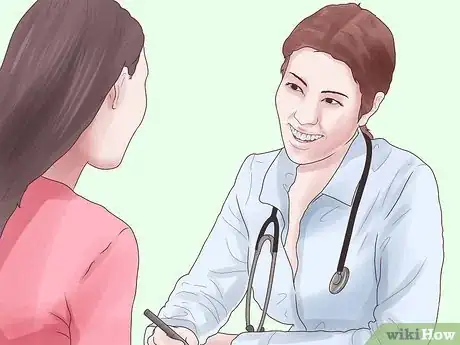

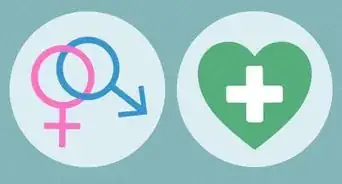

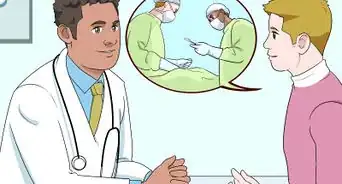

-Step-13.webp)


-Step-8-Version-3.webp)














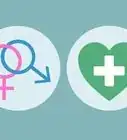

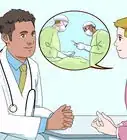



































Medical Disclaimer
The content of this article is not intended to be a substitute for professional medical advice, examination, diagnosis, or treatment. You should always contact your doctor or other qualified healthcare professional before starting, changing, or stopping any kind of health treatment.
Read More...